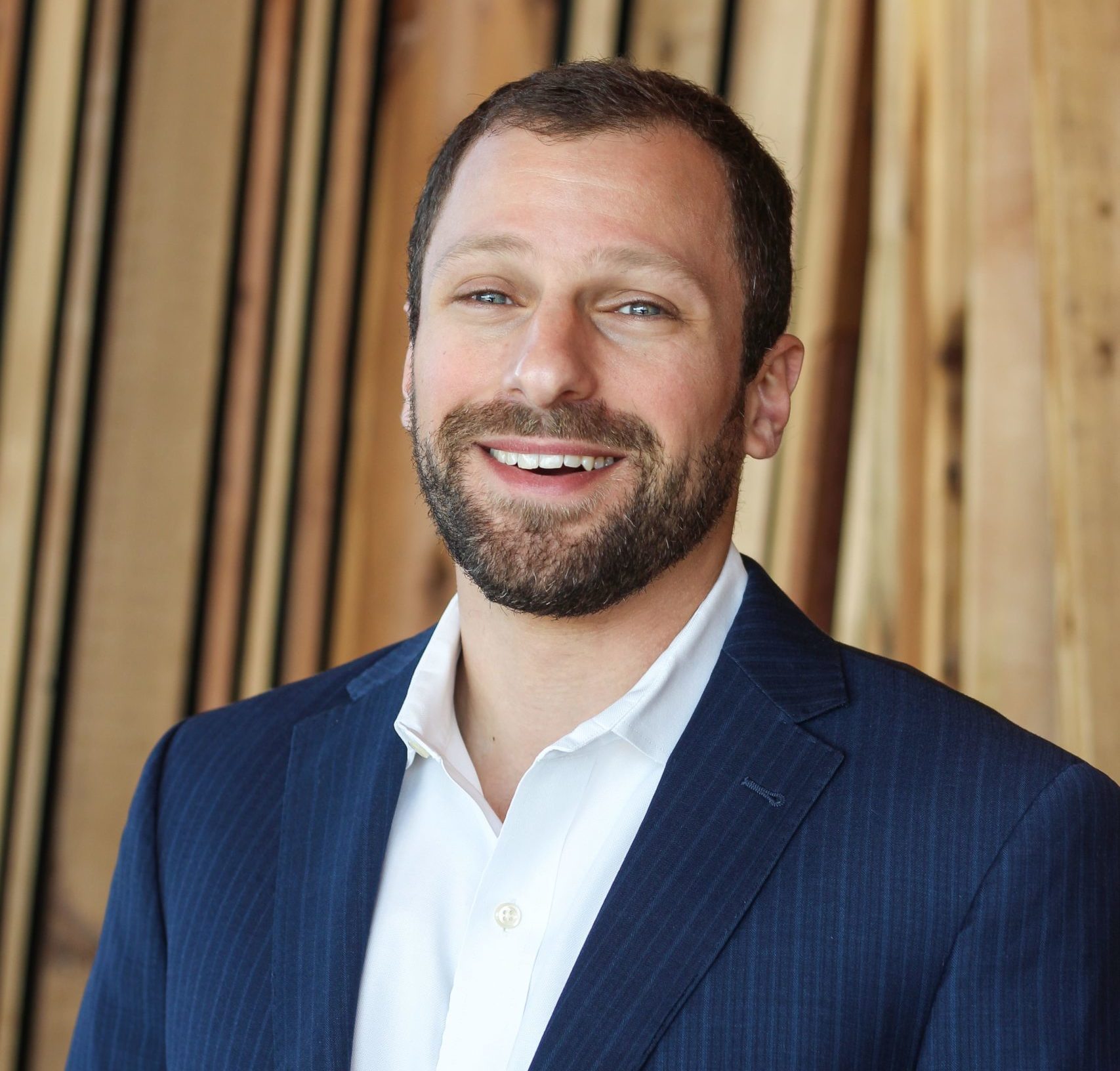Need a Philanthropist to Support Your Cause? Try a Values-Driven Approach
August 23, 2022

A few years ago, one of us (Andrew) had the opportunity to spend a weekend with a cohort of fellow recipients of the Germanacos Fellowship, now known as the Interfaith Innovation Fellowship. We were joined by Anne Germanacos, the fellowship’s funder.
Throughout the weekend, Anne participated in workshops, ate meals with the fellows, informally chatted with everyone, and earnestly listened to our reflections on how to unlock the potential of America’s religious diversity.
At a fundraising roundtable in the living room of Franklin Lloyd Wright’s famous Emil Bach House, Anne shared how grateful she was that her financial resources could support the fellows’ interfaith efforts.
Her words surprised Andrew. Up until that point, his perception of fundraising was that you had to convince wealthy people to give you money. He hadn’t fully internalized that funders wanted to drive impact and that they are dependent on implementing partners to do so.
Since then, Andrew has learned that fundraising can and should be a partnership – one where funders and those receiving funds work together around a shared cause, where the role of fundraiser takes the sacred position of bridge between resources and cause.
To achieve this vision of fundraising as partnership, however, we both have learned that it requires intentionally embedding a values-driven approach in all four stages of the donor journey.
Stage 1: Identification
Identification is the process of finding people and organizations that are interested in giving to your cause.
In a values-driven approach to identification, before you begin to look for donors, you first must be clear about your vision, mission, and values. Partnerships are about finding alignment between what you aim to accomplish and what social change the donor wishes to see in the community. From there, you can ask: Who inside and outside your network shares your values and vision for the world? Which corporations and foundations advance your values through their missions or Corporate Social Responsibility policies?
Stage 2: Cultivation
Cultivation is the process of building a relationship with a potential donor.
In a values-driven approach to cultivation, uncovering donor motivation is key. What makes an individual part from their wealth? What makes a business invest profits in a cause instead of keeping them? By listening deeply during this stage, you can find alignment between what you aim to accomplish and what social change the donors wishes to see in the community.
Cultivation is often the stage where a prospective donor first learns about what you do. From a values-driven lens, it’s important to tell the story of your work in a way that honors the dignity of those you’re attempting to positively impact. It’s long been effective in the nonprofit world to use pictures, language, and stories that inspire pity, sympathy, and saviorism in potential donors. But this is against the very values we strive to establish in our work. You don’t want to ignore the challenges present in the communities you work in or commodify their suffering; instead, you should highlight their stories of brilliance and resilience. This will create a major shift in the narrative about the communities we work with and help shift donors’ perceptions.
Stage 3: Invitation
Invitation (or solicitation) is the process of inviting a person or organization to give.
In a values-driven approach to invitation, the financial ask of the prospective donor should be at the intersection of what your organization needs and what the donor is capable of and interested in giving. Don’t ask for more or less than you need because that is dishonest – and honesty is the at the core of a successful partnership. Embrace the opportunity to coach a potential funder about the value of multi-year and unrestricted gifts, relevant reporting requirements, and the importance of funding unpopular budget lines like overhead costs.
At this stage, despite prior cultivation, it’s possible that the interest or the objective of an individual, foundation, or corporation would have shifted. Don’t be afraid to walk away from the donation if their values have changed or if they have an agenda that will hurt your work or reputation.
Stage 4: Stewardship
Stewardship is the process of continuing the relationship with the donor after the financial gift and to show accountability and gratitude.
In a values-driven approach, stewardship is understood as an opportunity to deepen the relationship with the donor. Beyond communicating gratitude, you can deepen the relationship through transparency and candor. What is going well with your work? What are your challenges? Is there anything you would like to change about your partnership? Stewardship rooted in values like openness and honesty are key to establishing an authentic and long-term partnership.
The end result of a good stewardship program is a renewed gift. Because donor attrition is a major issue for all non-profits, i.e., 54.4% of donors who donated to charities did not renew their gifts in the following year. The way we steward donors and keep them close to our values plays a major role in receiving their renewed support.
When we embed values in all parts of the fundraising process, it turns into a spiritual experience. Identification becomes a search to understand our purpose and who might be willing to partner with us in our journey; cultivation becomes an exercise in listening and empathy; invitation becomes an offering and a connection; and stewardship becomes an opportunity for gratitude, deepening, and renewal. Fundraising becomes something sacred and more effective, where, rooted in values, funder and implementing partner work together to improve the world.
Share
Related Articles
American Civic Life
American Civic Life
Faith Based Efforts Work in Vaccine Uptake: Now Let’s Make it Easy
American Civic Life
Is This a Time for Bridgebuilding? 5 Leaders in Conversation

Irshad Osman
Irshad Osman is an imam by training and a fundraiser by profession. He obtained his Bachelor’s in Arabic and Islamic studies from Sri Lanka and master’s in public policy and management in the United Kingdom. Osman currently works as a Senior Development Officer at the Faculty of Arts of Science at the University of Toronto. Passionate about inclusive philanthropy, he has worked at United Way Toronto, Silent Voice Canada, IDRF, and elsewhere overseeing fundraising portfolios worth of millions of dollars to support local and international causes. He was selected in the first cohort of AFP’s “Fellowship in Inclusion & Philanthropy” in 2016, was an Interfaith Innovation Fellow with Interfaith America in 2020, and was among the 25 interfaith leaders and dialogue practitioners who graduated from the KAICIID International Fellowship in 2022.

Andrew Spector
Andrew Spector is a co-founder and a Program Director of Tulsa Changemakers in Tulsa, Oklahoma. During his first year as a Teach For America corps member teaching 6th grade at Bell Elementary in Tulsa Public Schools, Andrew co-founded Tulsa Changemakers with Jake Lerner because they were inspired by the leadership skills of their respective students. Andrew is originally from Bedford, Massachusetts and graduated from the Honors College at College of Charleston with a degree in psychology. Upon graduation, Andrew received the college’s highest honor, the Bishop Robert Smith Award, for his leadership and academic excellence. He has served with the Metanoia Community Development Corporation in North Charleston, South Carolina, and received training from the Weikart Center for Youth Program Quality and the Asset Based Community Development Institute. Andrew serves as Board Member of Hillel of Northeastern Oklahoma and the Jewish Federation of Tulsa and is a member of Interfaith America’s Alumni Speakers and Trainers Bureau. In 2018, Andrew was honored with ionOklahoma’s NextGen Under 30 Award. He is currently earning a Master of Arts in Philanthropic Studies at Indiana University’s Lilly Family School of Philanthropy.



